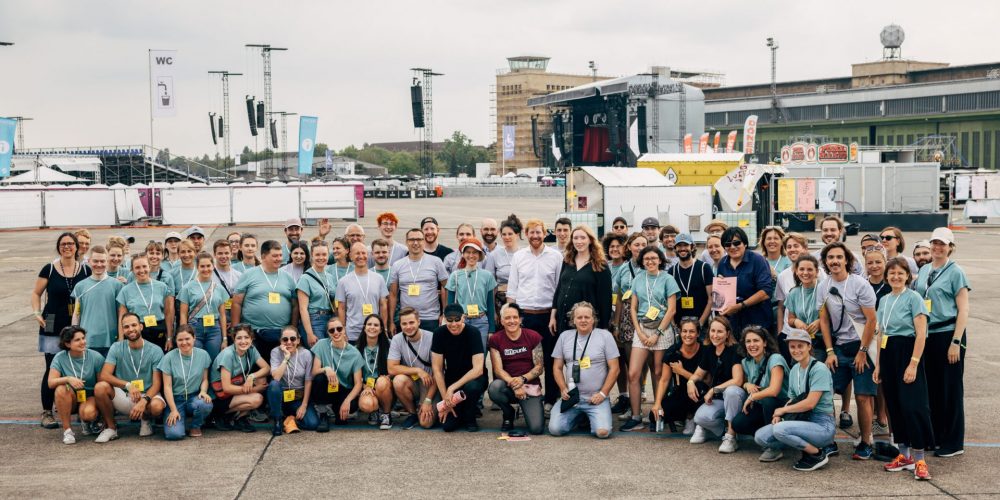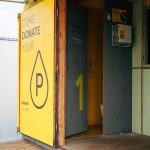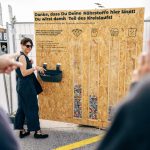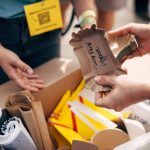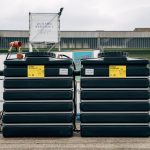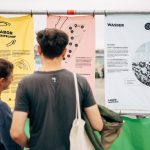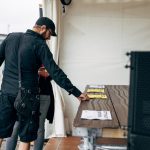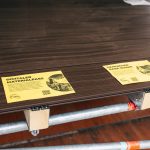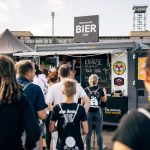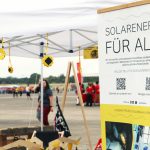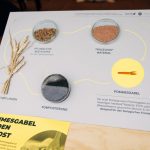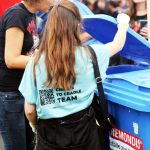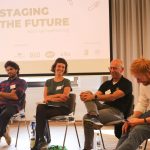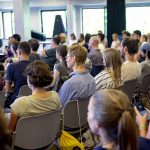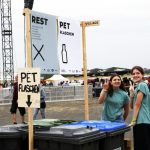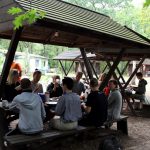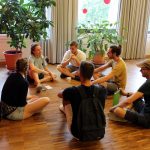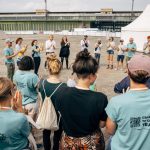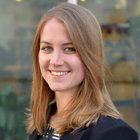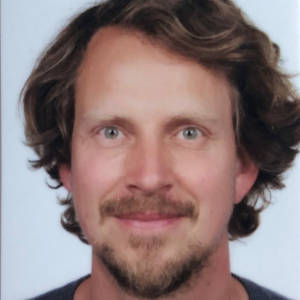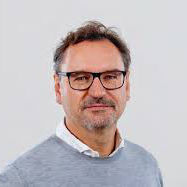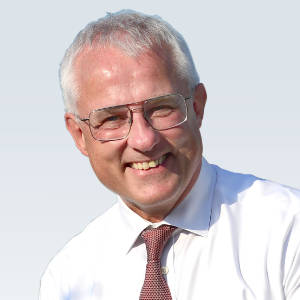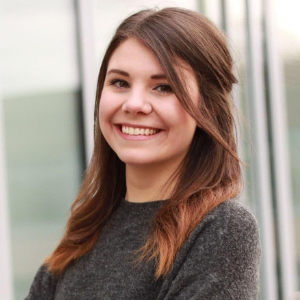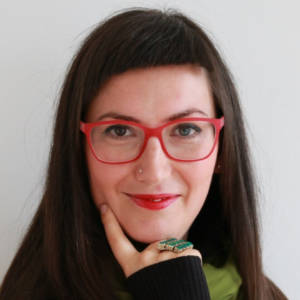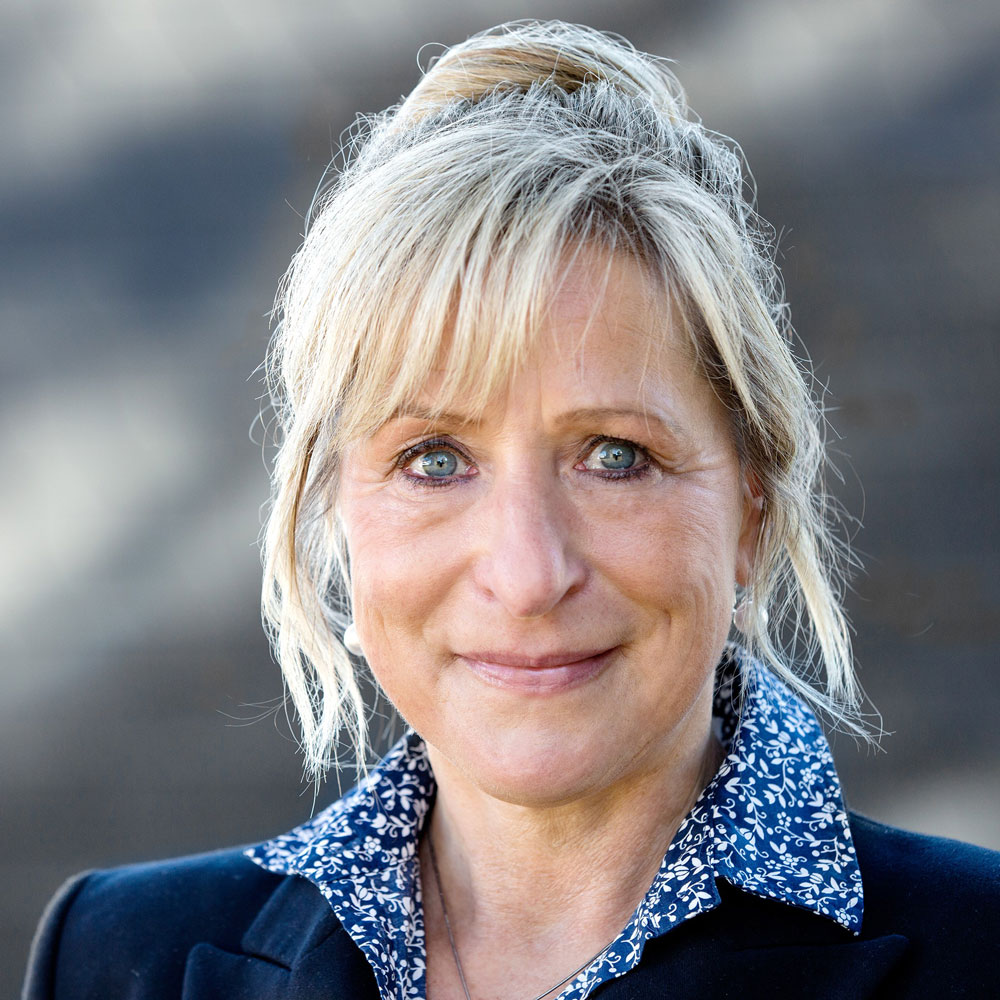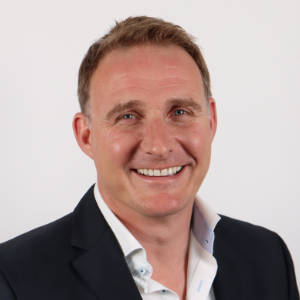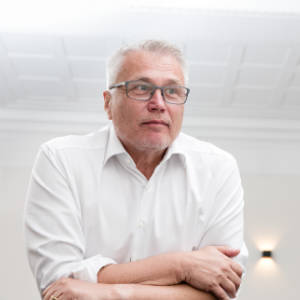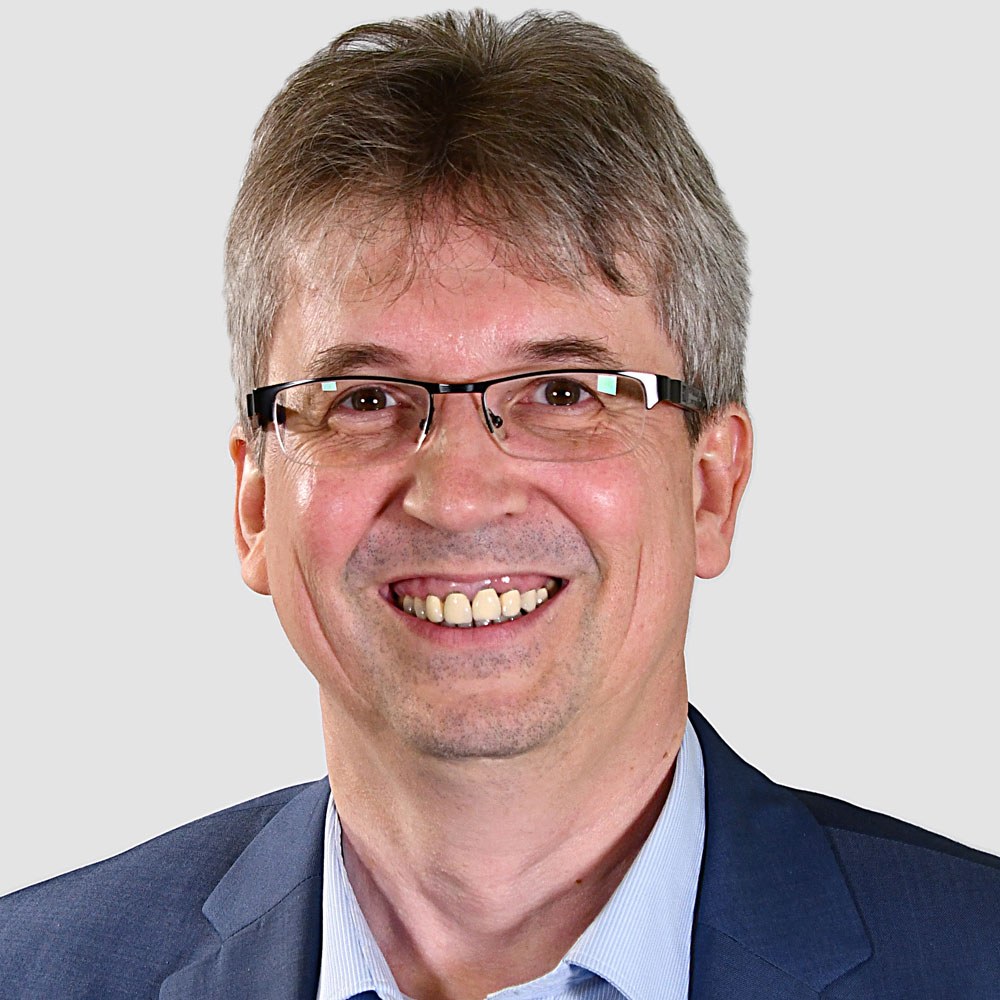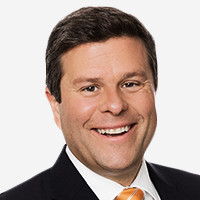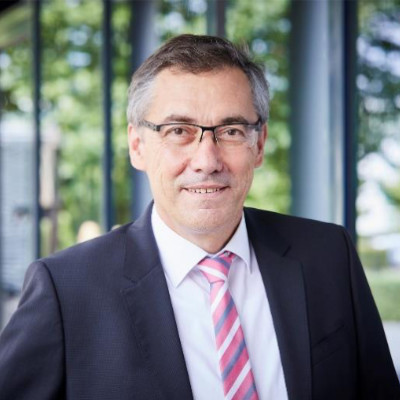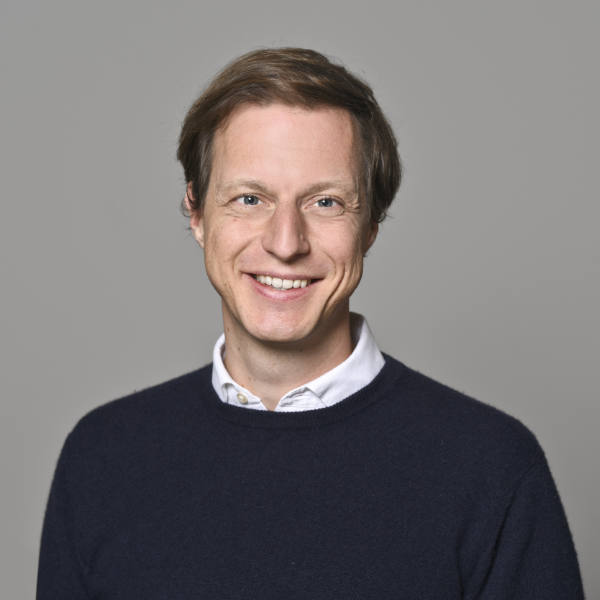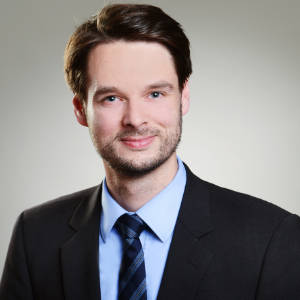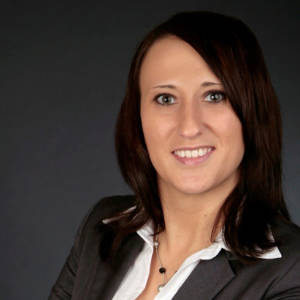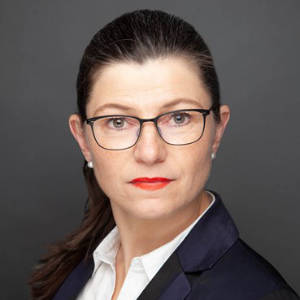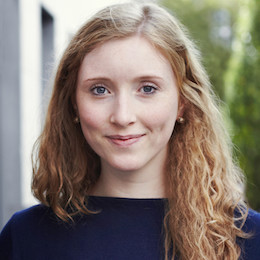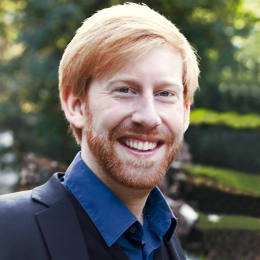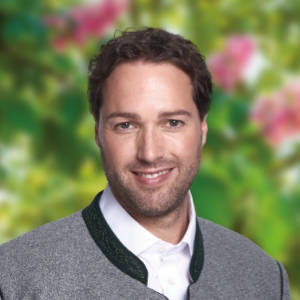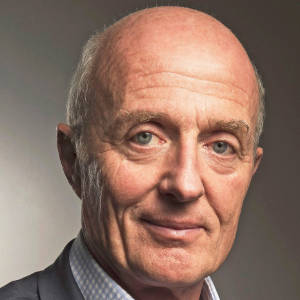Die Ärzte and Die Toten Hosen provided four concerts in August 2022 at Tempelhof Airport in Berlin for a laboratory. Together with our co-project initiators KKT GmbH – Kikis Kleiner Tourneeservice, Loft Concerts GmbH and Side by Side Eventsupport GmbH, we have implemented and tested products, processes and innovations that are as climate- and resource-positive as possible and tested their scalability. A brief review of our largest transformation project to date.
Amidst a sea of predominantly black clothing, they walked around, the ambassadors of C2C NGO, in light blue and brown t-shirts. With “QR codes tattooed on their backs,” as Die Ärzte singer Farin Urlaub called it. Who said “thank you” when someone threw a paper plate, napkin or French fries fork into the (apparently correct) garbage can. At first, this caused some confusion, as it rarely happens that someone thanks you for such a supposedly simple action. But quickly the confusion was resolved. The C2C ambassadors ensured that “garbage” does not remain garbage, but can become nutrients through proper separation. The comprehensive nutrient concept was part of the Labor Tempelhof project, for which Die Ärzte and Die Toten Hosen provided the project initiators Cradle to Cradle NGO, KKT – Kikis kleiner Tourneeservice, Loft Concerts and SBS Eventsupport with four concerts in August 2022 at Tempelhof Airport in Berlin.
Why?
But why all this? Climate change, waste of resources, microplastics in the oceans, etc… All reasons to take a look at the status quo and perceive opportunities for improvement. Our current linear mode of action and production follows the principle of “take – make – waste”. The problems associated with this are also evident in the event sector. Culture is what makes us human, we develop as humanity through it. But major events consume immense resources, much of which is left behind as waste. This harms people and the environment. One ray of hope is the growing political awareness for a socio-economic transformation. And that’s where Labor Tempelhof comes in.
Laboratory Tempelhof
The Tempelhof laboratory is intended to show what is already possible today according to Cradle to Cradle. And there is hardly a better testing ground for this than a major concert where 60,000 people come together. Because these people have to travel there, they eat and drink there, they go to the restroom, and they buy merch – all areas where attempts have been made to implement C2C innovations as much as possible. The project was explicitly intended as a laboratory, as it was already clear in advance that ideal C2C solutions would not be implementable everywhere. As is still the case in today’s economy and society. Many innovations tested were readily implementable on a small scale, but not scalable. The reasons for this provided the project initiators with important insights into what framework conditions are still missing for a true circular economy based on C2C. Part of the project is therefore two publications that are intended to change this: In a guidebook for the event industry, the results of the impact measurement of all measures will be published in November. Digital and multilingual, as a blueprint for event organizers, inviting them to share, imitate and improve. Meanwhile, the report, which has already been published, is aimed at policymakers and industry and provides recommendations for action to create the right framework conditions for a genuine circular economy based on C2C.
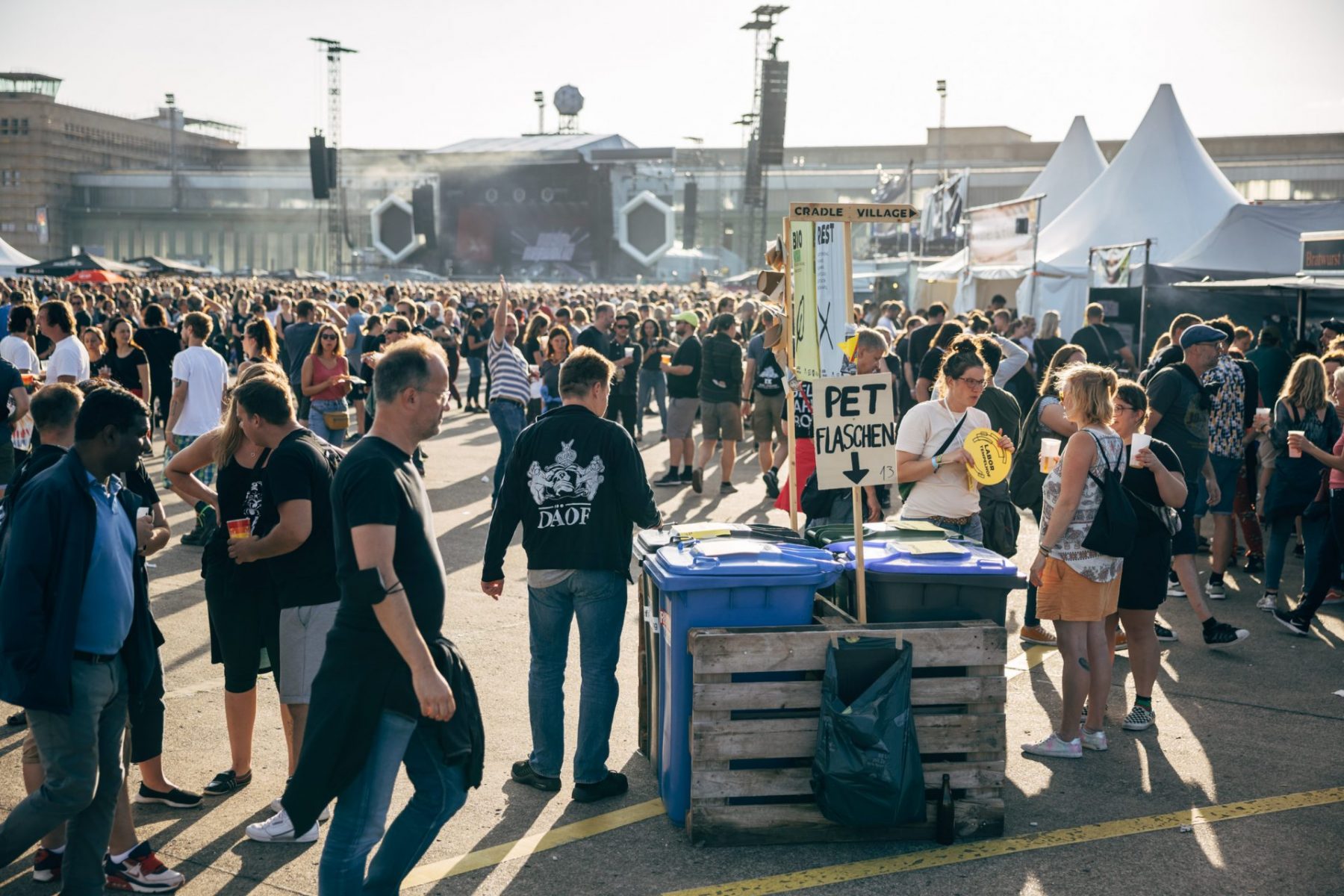
Show what is possible
Levers to fundamentally change our linear way of doing business are offered enough by a large-scale concert. In total, we were able to implement around 40 so-called cases, which show the areas in which C2C solutions are already in place at events. Where C2C innovations could not be implemented for technical or financial reasons, C2C-inspired or ecological alternatives were used wherever possible. This was to make sure that everything would be as cradle as possible.
Cases you may have experienced directly as a visitor or seen on our social media channels included the predominantly plant-based food options, the dry toilets, or the Doctors and Pants merch t-shirts made according to C2C. The cases resulted from the areas that are relevant for production at a large event. The clusters include Catering & Gastro, Printing, Energy, Logistics & Mobility, Nutrient Logistics, Production & Infrastructure, Sanitation, Social Aspects, Textile and Water.
We can already put some of the results of these measures into figures today. For example, we have been able to use 100% green electricity via fixed power. To the best of our knowledge, this is the first time in Germany that this has been achieved for a concert of this size at Labor Tempelhof. By fixed power, we were able to run sound and sound on the stage, as well as all the food and beverage stands. As a result, and by running the emergency generators on HVO fuel made from hydrogenated vegetable oil instead of conventional diesel, a total of about 1,000 t of C02 could be saved.
We were able to save about 51% water across all concerts compared to a traditional event. This was mainly related to the supply chains of C2C and sustainable products that were used. For example, a big lever for water conservation was the predominantly vegan/vegetarian food options.
From 88% of all toilets in the field, we have ensured the circulation of nutrients. Solids from toilets are processed into humus and urine into phosphorus. Both can be used either regularly, or as part of research projects as fertilizer for regenerative agriculture.
About 85% of visitors traveled by public transportation, on foot, or by bicycle. In comparison, studies show that around 55% of visitors to similar events travel by car. Thus, travel is usually the largest emitter of greenhouse gases.
Crew and bands were provided with 100% vegetarian-vegan food. The target for viewers was 70% vegetarian-vegan offerings; 60% were ultimately implemented. On average, the vegetarian-vegan diet consumes 50% less water, as well as 40% less CO₂ in the cultivation of plants compared to animal husbandry.
Another common area at events is textiles. At the Tempelhof laboratory, a total of 16,800 T-shirts were produced for Die Ärzte and Die Toten Hosen according to C2C criteria. The production process produced around 70% fewer CO₂ emissions than conventional shirts. They are also fully recyclable and compostable, from fabric to ink.
In addition to the fully implemented cases, we were also able to initiate many other projects, such as the production of a French fry fork made from a compostable plastic alternative. There was no longer enough time to scale the fork to hundreds of thousands. But the project will continue and we hope that the french fry forks will be part of the basic equipment of catering stands in the next festival season at the latest.
You can find a deeper insight into the respective cases and a list of all implementation partners on our project website.
Teamwork and concert
The implementation of such a huge project can only succeed through teamwork and with many helpers. That’s where our C2C ambassadors came in. Traveling from all over Germany and Austria, they participated in workshops for 3 days at the Cradle Camp at the Landesmusikakademie in Berlin. They listened in deep dives, learned and exchanged with the speakers, but also made music together around the campfire, created colorful evenings and grew together as a group. This, in addition to the exchange of information on C2C measures at the concerts, was also the goal of the Cradle Camp.
The majority of the active participants arrived early on Monday or Tuesday and were able to settle into the Music Academy’s bungalow village. The next two days consisted of various deep dives into individual Cradle Cases, such as C2C band shirts, dry toilets and the recovery of phosphorus from urine. Workshops were also offered where activists worked together to gain new knowledge on pitching Cradle to Cradle or activism forms. And of course the preparations for the weekend, the concerts and the division of the ambassadors into teams started.
It is always great to see so many active volunteers and to exchange ideas with them. The colorful evenings brought the group of almost 100 people more and more together, there were conversations about their own volunteer work and this exchange is, as experience has shown, always a great motivational boost for everyone involved. With workshops and formats offered by activists on topics such as clothing consumption or a brainstorming session on a C2C shelf, it was wonderful to see how motivated volunteers became a sworn group that looked forward to the concerts and conversations with the visitors*.
On Friday morning it was time and the Cradle Camp moved off to Tempelhof Airport. Full of anticipation and armed with new knowledge about the Cradle Cases. The disappointment was all the greater, even among the active participants, when the Die Ärzte concert had to be cancelled on Friday due to thick thunderclouds over the concert site.
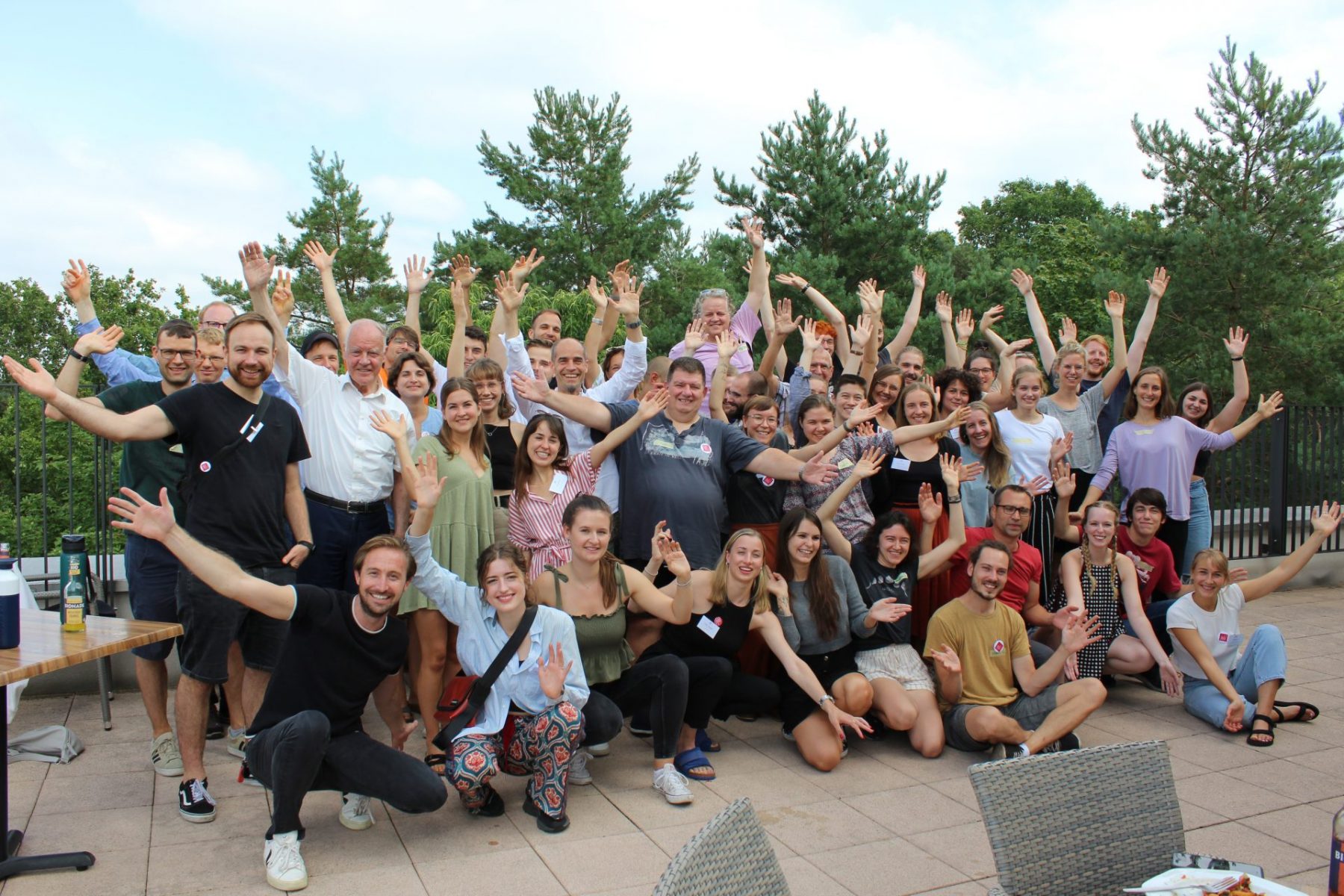
New day, new chance
Fortunately, the following two concerts on Saturday and Sunday could take place as planned. Together with the concert of Die Toten Hosen, which already took place the weekend before the Cradle Camp with a smaller number of ambassadors, our volunteers were able to use all their C2C knowledge at three of four planned concerts. So on Saturday and Sunday, everyone from the NGO’s full-time team and the ambassadors* met at Cradle Village. There, everyone heard another motivational speech from our project manager Jonna and our executive board members Nora and Tim, and then jumped into work.
The ambassadors’ tasks on Saturday included first and foremost checking the nutrient islands that had been set up after the previous day’s thunderstorm and equipping them with new illustrative material on what exactly should go in which garbage can. At 2:00 p.m. sharp, the first fans arrived to secure the best seats in the front rows of the concert. And with the first visitors on the field, the first interested people came to the Cradle Village. There, they learned about the concept of the concerts, the individual cases, could win a Die Ärzte shirt in a quiz, record on the Citizen Wall what a sustainable large-scale concert looks like for them – or drink a beer brewed with leftover bread at the Knärzje stand.
The last chord on Sunday evening marked the end of our “Botis” at the Tempelhof laboratory – but by no means the end of the entire project. Because just as Die Toten Hosen and Die Ärzte continued on tour after short breaks, the Tempelhof laboratory will soon start implementing the next project modules.
A look into the future
The concerts and the implementation of the C2C cases were preceded by many months of work, but strictly speaking, the two weekends in August were just the start of the transformation project. As a further project component, the report on the project has already been published, which contains recommendations for action by policymakers for a genuine circular economy based on Cradle to Cradle. Together with the research and consulting institute Adelphi, we have written down which legal hurdles or missing framework conditions we have noticed in the implementation of the cases that still stand in the way of a C2C economy. Together with the management consultancy BCG, we have precisely measured the impact of the individual cases on climate and resources and are still doing so. We will publish the results in November as a digital, multilingual guidebook for the event industry. It is intended to be a blueprint for all organizers, inviting them to share, imitate and, ideally, do better. It appears in time for the C2C Summit: Staging the Future, which will be held in Berlin on Nov. 22, 2022. There, we will discuss the results with representatives from politics, business and the event industry and how we can implement the measures we have taken in all other areas of society. This will be followed in the next two years by a four-month exhibition on the Tempelhof Laboratory and a series of 12 smaller events in Berlin. Ultimately, the aim is to create a transformation platform through which everyone who wants to work together with the project initiators to make a real difference can network and exchange ideas.
Keep eyes open
So the next time you attend a concert, festival, or other event, be on the lookout for dry toilets or other items we tried at the Labor Tempelhof concerts. We are curious to see how quickly and widely this approach will catch on at major events.

